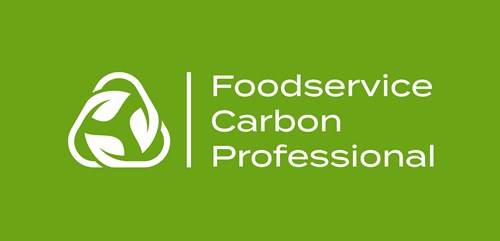Foodservice Carbon Professional - FCP

This page includes information on
- Background to Foodservice Professional Carbon Professional
- FCP Core Module structure
- FCP Refrigeration Module structure
- FCP Cooking and Warming Module structure
- FCP Warewashing Module structure
- Course delivery
- Accessing Foodservice Carbon Professional
- Course cost
- FCP sign-up form
- Foodservice Carbon Professional contact: enquiries@fea.org.uk
📝 Sign up for Foodservice Carbon Professional
Background Foodservice Carbon Professional (FCP)
Foodservice Carbon Professional is leading the foodservice equipment industry in the development of skills, knowledge, and expertise to address the energy challenges and sustainability demands currently placing a strain on the sector.
Through the learning and development of the FCP Core Module and Product Specific Modules; employees in the supply chain (manufacturers, importers, distributors, consultants and operators) will be empowered with the confidence and knowledge to assess and address key issues in a professional capacity and adopt key behavioural changes.
Foodservice Carbon Professional provides delegates with science-based knowledge enabling them to initiate discussions on climate change with foodservice sector clients and colleagues as well as gaining the confidence required to be able to challenge misconceptions on the impacts and causes of climate change in relation to the foodservice sector.
Accredited delegates will be able to confidently and coherently discuss carbon reduction in context of the foodservice equipment sector aligning their knowledge to their own product portfolio and business activities.
By partnering with recognised professionals, the FEA has brought its strength to delivering a unique and comprehensive resource for the industry.
Benefits to the employer
Empowers employees with the ability to align theory with real life situations and how understanding of carbon and sustainability can improve business credibility.
Benefits to the employee
Delegates will be enabled to discuss carbon reduction in context of the foodservice equipment sector and relate it to the types of equipment in their sales portfolio.
Benefits to the environment
Knowledge acquired of the overarching implications of climate change for the foodservice supply chain will have a positive effect far beyond that of just the sector.
📝 Sign up for Foodservice Carbon Professional
Foodservice Carbon Professional Course Structure
FCP delegates are required to take the Core Module before taking an elective category specific module. The category specific modules include Cooking Equipment, Refrigeration, and Warewashing. Foodservice Carbon Professional is open to anyone who wishes to become accredited.
Core Module Content
Section 1 – Climate and Carbon: Global Big Picture
- Climate and environmental challenges
- What are greenhouse gasses
- What is carbon and its relationship to energy supply?
- Impacts and implications from not acting on carbon and climate
Section 2 – Measurement, Reporting and Legislation
- Carbon measurement
- Net zero carbon and carbon neutrality
- Offsetting
- Guidance for carbon reporting
- Legislative framework
- Water
- Waste and FOG
Section 3 – Carbon Reduction in the Food Service Sector
- Carbon reduction context within the sector
- Equipment categories and their carbon emissions
- Associated energy reduction strategies
- Understanding asset value
- Supply chain integrity and energy reduction projects
- Life cycle assessment
Section 4 – Practical Application
- Student participation to discuss open-ended topics relating to any real-life, practical issues and challenges for their business / teams.
- Compare theory to real life situations and how understanding of carbon and sustainability can improve business credibility
📥 Download FCP Core Module Scope
📥 Download FCP Core Module Course Content
📝 Sign up for Foodservice Carbon Professional
Refrigeration Module Content
Section 1 – Scope and Application
- Key professional food service refrigeration products, their applications and selection criteria.
Section 2 – How it Works
- Key principles of refrigeration
- Key components in refrigeration systems
Section 3 – Refrigerants
- Key properties of refrigerants
- Context of environmental legislation concerning refrigerants
- Types of refrigerants
- Calculating the carbon impact of refrigerants
- The importance of energy efficiency
Section 4 – Legislation and Regulation
- Ecodesign for refrigeration
- Energy labelling requirements
- F-gas regulations compliance
- Other environmental legislation affecting refrigeration
Section 5 – Lifetime Emissions
- Lifetime emissions of foodservice refrigeration
- Embodied carbon of refrigerators
- Design for low carbon
- Transport and distribution
- Reduction of energy and carbon in the use of refrigeration systems
- Food safety and waste reduction
- The importance of staff training
- Appropriate maintenance of refrigeration systems
- Fugitive emissions from refrigeration
- Innovation and development in refrigeration technology
- End of (first) life of refrigeration systems
- Lifecycle costs
- Case studies of whole lifetime emissions
📥 Download FCP Refrigeration Module Scope
📥 Download FCP Refrigeration Module Course Content
📝 Sign up for Foodservice Carbon Professional
Cooking & Warming Module Content
Section 1 – Scope and Application
- Key professional food service refrigeration products, their applications and selection criteria.
Section 2 – How it Works
- Key principles of cooking and warming
- Key components in cooking and warming systems
Section 3 – Legislation and Regulation
- Ventilation for cooking and warming equipment
- Regulation relating to gas consumption
- Water regulations compliance
- Understanding electrical regulations for cooking and warming equipment
- Other environmental legislation affecting cooking and warming equipment
Section 4 – Lifetime Emissions
- Lifetime emissions of foodservice cooking and warming equipment
- Embodied carbon of cooking and warming equipment
- Design for low carbon
- Transport and distribution
- Reduction of energy and carbon in the use of cooking and warming equipment
- Food safety and waste reduction
- The importance of staff training
- Appropriate maintenance of cooking and warming equipment
- Innovation and development in cooking and warming technology
- End of (first) life of cooking and warming equipment
- Lifecycle costs
- Case studies of whole lifetime emissions
📥 Download FCP Cooking and Warming Module Scope
📥 Download FCP Cooking and Warming Module Course Content
📝 Sign up for Foodservice Carbon Professional
Warewashing Module Module Content
Section 1 – Scope and Application
- Key professional food service Warewashig products, their applications and selection criteria.
Section 2 – How it Works
- The main components of professional foodservice warewashing equipment
- The principles and processes of sanitation
- How warewashing chemicals operate
- Foundations of making environmentally conscious decisions regarding reduced energy consumption and emissions
Section 3 – Legislation and Regulation
- Energy technology list and Ecodesign
- Working with electricity
- Data regulations
- Grease management
- Sanitation
- Water supply and fittings regulations
- Other sustainability reporting and compliance
Section 4 – Lifetime Emissions
- Manufacturing
- Design and selection
- Specification of energy saving features
- Use phase and practical action
- Reducing emissions from chemicals
- 4b (Part 2)
- Maintenance
- Research and Innovation
- End of Life
- Reduction of carbon equivalent emissions from foodservice warewashing equipment
📥 Download FCP Warewashing Module Scope
📥 Download FCP Warewashing Module Course Content
📝 Sign up for Foodservice Carbon Professional
How is the course delivered?
Foodservice Carbon Professional is a blended learning programme delivered through the FEA Academy, FEA’s learning management system.
The Foodservice Carbon Professional features a mix of presentations, recorded audio, virtual tutorials, reading materials and multiple choice and short answer questions, and working group discussions.
Important, please read: FCP is a self study accreditation. Learners are required to complete the course within 12-months. If the course is not completed in the twelve-month timeframe delegates will be required to re-subscribe at full cost in order to gain an FCP accreditation.
Accessing Foodservice Carbon Professional
Registered users can access Foodservice Carbon Professional via the FEA Academy login portal.
New users
- Select which modules you wish to subscribe to via the course payment form.
- Once payment has been received head to FEA Academy landing page and click the 'Create new account' link in the bottom right-hand corner of the page.
- Once you have registered you will receive an email acknowledging your registration.
- You will then receive a second email informing you that your account is active.
Who to contact
If you have any issues with the registration process or logging in please contact enquiries@fea.org.uk
Course Cost
Sign-up promotion for FEA members
- Individual Core Module cost – £750
- Individual sector specific module cost - £650
- Core module & category specific sign-up promotion £1300
– saving £100 pp.
Sign-ups from non-category-specific companies can benefit from the saving when booking two Core Modules.
📝 Sign up for Foodservice Carbon Professional

